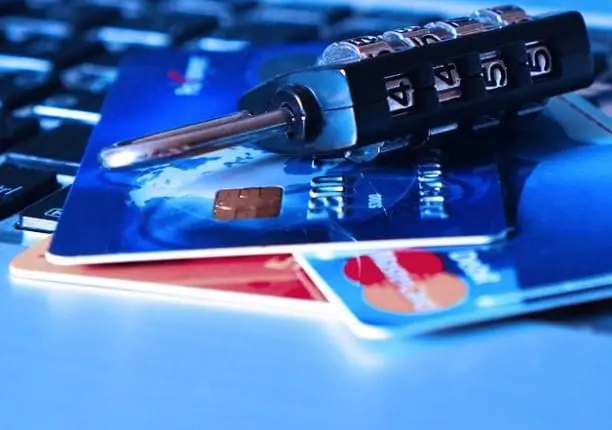In today’s digital age, where personal information is readily accessible and constantly being shared, the concept of privacy has become a topic of great concern. As we navigate the vast landscape of the internet and technological advances, it is essential to understand the dark side of the invasion of privacy and its implications on different aspects of life. This article will explore various aspects of privacy invasion and the threats it poses. It will also include tips for protecting your privacy in this digital era.

Understanding the Concept of Privacy
Privacy, in its simplest form, refers to the right of an individual to keep their personal information and activities away from the public eye. Over the course of history, privacy has evolved to become an integral part of our societal norms. In earlier times, privacy predominantly revolved around physical spaces, such as the home or personal property.
However, the concept of privacy is not limited to physical boundaries. It has expanded to encompass various aspects of daily life, including the digital realm. With the advancement of technology, privacy now extends beyond the confines of the home and personal belongings.
In today’s interconnected world, online activities, personal communications, and data have become part of a vast network of information. This interconnectedness has given rise to new challenges and complexities in defining and protecting privacy.
The Evolution of Privacy Through History
Throughout history, the definition and understanding of privacy have developed in tandem with societal changes and technological advancements. Initially, privacy was primarily a concern for the privileged few, as commoners had little expectation of privacy. During the emergence of modern democracies, the concept of privacy gained recognition and protection through legislation. Constitutions and legal frameworks were established to safeguard individuals against unwarranted intrusions into their personal lives.
However, the line between public and private is becoming increasingly blurred. Today, privacy is about physical spaces and personal belongings and the digital footprint left behind. Online presence, social media activities, and digital transactions have become part of the privacy discourse.
Legal Definitions and Boundaries of Privacy
In the legal realm, privacy is often defined by statutes, regulations, and court interpretations. The boundaries of privacy can vary across different jurisdictions, leading to complexities and debates surrounding its interpretation.
Legal definitions of privacy generally encompass various aspects such as informational privacy, bodily privacy, and privacy of personal communications. These definitions lay the groundwork for setting limits on how personal information can be collected, used, and shared by others.
However, technological advancements often outpace legislative measures in the digital era, leaving gaps in protecting individual privacy. This creates a fertile ground for today’s privacy threats.
With the proliferation of social media platforms, online advertising, and data-driven technologies, personal information is constantly being collected, analyzed, and monetized. The challenge lies in striking a balance between the benefits of technology and the protection of individual privacy rights.
Furthermore, the rise of surveillance technologies by governments and private entities has raised concerns about the erosion of privacy. Facial recognition, biometric data, and location tracking have sparked debates about privacy limits in the digital age.
Navigating this evolving landscape, it is crucial to continue the dialogue on privacy and establish robust legal frameworks that adapt to the rapid pace of technological advancements. Only through a comprehensive understanding of privacy and its implications can individual rights be safeguarded and a healthy balance made between privacy and progress.

The Modern Threats to Privacy
The advent of social media platforms, government surveillance programs, and data breaches has drastically changed the landscape of privacy. These modern threats to privacy present new challenges that require attention and vigilance.
The Role of Social Media in Privacy Invasion
Social media platforms have become an integral part of daily life. People share their thoughts, experiences, and personal details on these platforms with friends, family, and even strangers. However, this constant sharing comes at a cost.
Unbeknownst to many, the information shared on social media can be accessed and used by various entities, including advertisers, marketers, and even cybercriminals. Personal information can be easily exploited, leading to a breach of privacy and potential harm.
Government Surveillance and Privacy Concerns
In the name of national security and crime prevention, governments around the world have implemented surveillance programs. While these programs aim to protect citizens, they often raise concerns regarding the invasion of privacy and civil liberties.
Mass surveillance techniques, such as wiretapping and data interception, allow governments to access vast amounts of personal information without individuals’ consent. This raises questions about the balance between security and privacy, and the potential abuse of power.
Data Breaches and Personal Information Leaks
In recent years, numerous high-profile data breaches have exposed millions of individuals’ personal information. These breaches have compromised their privacy and left them vulnerable to identity theft and financial fraud.
Whether it is the result of hacking, insider threats, or inadequate security measures, data breaches serve as a grim reminder of the potential consequences of privacy invasion in the digital age. The impact can be long-lasting, causing the victims emotional distress and financial hardship.
The Dark Side of Privacy Invasion
Privacy invasion goes beyond mere violation of personal boundaries; it can have profound psychological and societal impacts. Understanding these consequences is vital in comprehending the true extent of the dark side of privacy invasion.
Psychological Impacts of Privacy Invasion
When privacy is violated, it can lead to feelings of anxiety, stress, and even paranoia. The constant fear of being monitored or having your personal information exposed can harm your mental well-being. The psychological impact of privacy invasion can extend to one’s interpersonal relationships. When trust is compromised, it takes time to rebuild, resulting in strained relationships and a sense of vulnerability.
The Threat to Personal Freedom
Privacy is closely intertwined with personal freedom. Without privacy, individuals may feel pressured to conform, becoming reluctant to express their true opinions or engage in activities that deviate from societal norms. This erosion of personal freedom can have far-reaching implications for democracy and the progress of society as a whole.
The Risk of Identity Theft
One of the most alarming consequences of privacy invasion is the risk of identity theft. When one’s personal information is exposed, hackers and cybercriminals can use it to access financial accounts or commit fraudulent activities.
The process of recovering from identity theft can be arduous and time-consuming, often resulting in financial loss and damage to one’s reputation. Identity theft is a violation of privacy and can have lasting economic and social consequences for the affected individuals.
Protecting Your Privacy in a Digital Age
While privacy invasion poses significant challenges, there are steps you can take to protect yourself and mitigate the risks involved. Safeguarding your privacy requires a holistic approach encompassing personal actions and legislative measures.
Best Practices for Online Privacy
Being mindful of your online activities is essential when it comes to protecting your privacy. This includes regularly reviewing your privacy settings on social media platforms, being cautious of the information you share online, and using strong, unique passwords for your accounts.
Furthermore, staying informed about the latest privacy threats and keeping your devices updated with security patches and antivirus software can help prevent potential privacy breaches.
Legal Rights and Recourses for Privacy Invasion
Understanding your legal rights and available recourses is crucial in the fight against privacy invasion. Familiarizing yourself with relevant privacy laws and reporting any violations you encounter can contribute to holding entities accountable and pushing for legislative changes.
Supporting organizations and initiatives that advocate for privacy rights can also make a difference by raising awareness and pushing for stronger privacy protections.
The Future of Privacy
As technology continues to advance at a rapid pace, the future of privacy remains uncertain. Emerging technologies such as artificial intelligence, facial recognition, and biometric identification present new challenges and raise new questions concerning privacy.
Emerging Technologies and Their Impact on Privacy
Emerging technologies hold immense potential for society but also come with potential risks to individual privacy. As these technologies become more integrated into daily life, policymakers and experts must work together to strike a balance between innovation and protecting individual privacy.
The Role of Legislation in Protecting Privacy
Legislation plays a crucial role in protecting privacy in this ever-evolving technological landscape. As we confront the challenges posed by emerging technologies, it becomes increasingly important for governments and international bodies to enact and enforce robust privacy laws. Moreover, collaborative efforts between policymakers, technology companies, and privacy advocates are essential to shaping a future where privacy is respected and protected.
In conclusion, the dark side of invasion of privacy highlights the need for a comprehensive understanding of its implications and the actions required to safeguard personal information. With an awareness of the evolving concept of privacy, the modern threats faced, and protection measures, internet users can navigate the digital age, confident that their privacy rights are respected.
